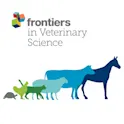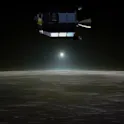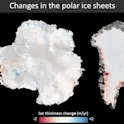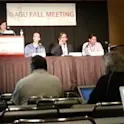1,071 news posts

Frontiers news
11 Apr 2016
Environmental Psychology launches as new section
We are proud and delighted to announce the launch of the latest section in Frontiers in Psychology: Environmental Psychology. This section will be led by Specialty Chief Editor Prof. Patrik Sörqvist, former Chair of the International Commission of Biological Effects of Noise (ICBEN) team 4, and specialist in the interactions between environmental factors, noise, auditory perception, selective attention, cognition and action. Mission statement: The section publishes experimental, theoretical and applied studies of psychological processes engaged in encounters between people and the built and natural environment. It covers all aspects of human behavior and mental life in relation to the sociophysical environment, whether considered as ambient environmental factors (e.g., noise, temperature, lighting), specific behavior settings (e.g., schools, offices, hospitals), the basic infrastructure of everyday life (e.g., energy and transportation systems), or in a broader sense, with regard to landscape and the relationship between built and natural aspects of human environments. Human behavior and mental life include, but are not limited to, perception and cognition, emotion, stress and mental fatigue, and social interactions, as manifest in covert and overt behavior. In brief, this Specialty Section of Frontiers in Psychology provides an outlet for researchers addressing many of the classical concerns of environmental psychology. The […]

Frontiers news
07 Apr 2016
New specialty section “Thermal and Mass Transport” now open for submissions!
We are very pleased to announce the launch of the latest specialty section for Frontiers in Mechanical Engineering: Thermal and Mass Transport, led by Chief Editor, Prof. Timothy S. Fisher. The section already has a strong, internationally representative Associate Editorial Board currently composed of the following researchers: Shyy Woei Chang (National Kaohsiung Marine University, Taiwan) Dipankar Chatterjee (CSIR-Central Mechanical Engineering Research Institute, India) David B. Go (University of Notre Dame, USA) Md Anwar Hossain (University of Dhaka, Bangladesh) Balaram Kundu (Jadavpur University, India) Haruhiko Ohta (Kyushu University, Japan) Nesrin Ozalp (University at Qatar, Qatar) Guillermo Rein (Imperial College London, UK) Sivasankaran Sivanandam (University of Malaya, Malaysia) Sebastian Volz (CNRS, France) Changying Zhao (University of Cambridge, UK) Speaking of the launch of this new specialty section, Prof. Fisher remarked that, “Thermal and mass transport are as important today as they were when they ushered in the industrial revolution. The main difference today is that we have so many more degrees of freedom — from amazing new materials to innovative ways to build transport devices more like Mother Nature does. On top of all this, understanding how transport happens in dynamic systems, whether relating to controlled release of pharmaceuticals or issues surrounding climate change, remains a […]

Frontiers news
06 Apr 2016
Interdisciplinary Collaboration is key to successful medical education
The medicine of the 21st century is moving from the “one-size-fits-most” practice to a targeted personalized approach, tailored to the specific characteristics and needs of an individual. The rapidly changing field of medicine and healthcare increasingly adopts scientific and technological innovations, making interdisciplinary collaborations especially important. The implications of these changes for medicine and the key components of successful interdisciplinary programs are discussed in Prof. Michel Goldman’s «Education in Medicine: Moving the Boundaries to Foster Interdisciplinarity». In his Field Grand Challenge for Frontiers in Medicine, Prof. Michel Goldman emphasized the importance of translational medicine to interdisciplinary collaborations. “Translational medicine can be defined as the interdisciplinary science that will cover this continuum, from basic research to preclinical and clinical research, development of new medicines and medical devices, and ultimately patient-centric care.” As medicine becomes increasingly interlinked with other fields, medical education needs also to evolve towards a more interdisciplinary approach. Prof. Goldman highlighted the need for a new taxonomy of diseases, novel trial designs, adapted regulatory policies and guidelines and patient-centricity as essential components of medical education. “Collaboration between healthcare stakeholders will be essential to address the complex scientific, regulatory, societal and economic challenges related to precision medicine. This will require […]

Frontiers news
30 Mar 2016
Frontiers in Ecology and Evolution: Fittest Articles of 2015
Here are the top 5 original research articles published in Frontiers in Ecology and Evolution in 2015.

Frontiers news
24 Feb 2016
Frontiers in Veterinary Science accepted into PubMed Central
Frontiers in Veterinary Science has been accepted into PubMed Central for indexing in PubMed. PubMed Central is a free digital full-text archive for biomedical and life sciences literature, and hosted by the U.S. National Institutes of Health’s National Library of Medicine (NIH/NLM). Articles published in Frontiers in Veterinary Science since its launch are now archived in the PMC repository, with a link to directly download the articles from the archive. Abstracts and citations of all articles are indexed and searchable using PubMed. We are delighted to be able to provide this additional service to our authors to further highlight important research contributions in Frontiers in Veterinary Science.

Frontiers news
18 Feb 2016
Announcing the launch of Frontiers in Sociology
We are very pleased to announce the launch of the first 5 specialty sections of Frontiers in Sociology.

Life sciences
18 Feb 2016
Transportation and Transit Systems: now open for submissions
Transportation and Transit Systems is led by Chief Editors Dr. Sakdirat Kaewunruen, Dr. Akira Matsumoto and Prof. Joseph M. Sussman.

Life sciences
13 Jan 2016
News from #AGU15: NASA’s LADEE mission
Our colleague Laura Smart, Journal Coordinator in our Physical Sciences and Engineering program, represented Frontiers at the AGU (American Geophysical Union) Fall Meeting in San Francisco from December 14 – 18,2015. Besides meeting with many Frontiers editors and authors, she also attended several scientific press conferences. Here, she gives her summary of an exciting talk by on NASA’s LADEE mission. In this press conference, scientists presented new findings on the moon’s tenuous exosphere, which ultimately should provide insight into the soil composition and processes in many atmospheres in our solar system. New findings from NASA’s LADEE mission at AGU Thursday 17th December Anthony Colaprete, Planetary atmospheric scientist and LADEE Ultraviolet-visible Spectrometer (UVS) Principal Investigator, NASA Ames Research Center, Moffett Field, California, USA Richard Elphic, LADEE Project Scientist, NASA Ames Research Center, Moffett Field, California, USA Menelaos Sarantos, Associate Research Scientist, University of Maryland, Baltimore County, Baltimore, Maryland, USA Thomas H. Morgan, Project Manager, NASA Planetary Data System, Goddard Space Flight Center, Greenbelt, Maryland, USA Artist’s concept of LADEE spacecraft in lunar orbit. Image credit: NASA Ames Anthony Colaprete spoke first and explained what observations NASA’S Lunar Atmosphere and Dust Environment Explorer (LADEE) mission made. He highlighted that the observations taken by LADEE’s Ultraviolet Spectrometer (UVS) every 12 h over a period of five months were measured from a distance of between 5-50 […]

Engineering
12 Jan 2016
Frontiers in Built Environment publishes its first eBook
We are very proud to announce the publication of Frontiers in Built Environment‘s first eBook: “Critical Earthquake Response of Elastic-Plastic Structures Under Near-Fault or Long-Duration Ground Motions: Closed-Form Approach via Impulse Input” which can be accessed and freely downloaded here: fron.tiers.in/go/J3u5ts Containing four original research papers, in addition to the Specialty Grand Challenge article, on the critical earthquake response of elastic-plastic structures under near-fault or long-duration ground motions, this eBook represents the culmination of outstanding recent research by Specialty and Field Chief Editor, Prof. Izuru Takewaki. Those who avail of the opportunity to host a Research Topic in Frontiers in Built Environment can also benefit by collating their curated collection of papers in a free eBook upon successful closing of their Topic. — Launched in February 2015, Frontiers in Built Environment is already establishing a solid reputation and setting a standard for high-quality, open-access publishing in a number of sections in the built environment field. Specialty sections currently open for submission include: Bridge Engineering Digital Architecture Earthquake Engineering Heating, Ventilation and Air-Conditioning Hydrosphere Structural Materials Structural Sensing Sustainable Design and Construction Wind Engineering and Science We will also soon be launching the following specialty sections: Urban Science Transportation and Transit Systems […]

Climate action
11 Jan 2016
Dire predictions and global updates at AGU 2015
Dire predictions and global updates dominated the course of two AGU 2015 press conferences on December 15 and 16. While the last year has seen increasing tension develop between Republican members of the US Congress and the NASA Earth Sciences Program over budget cuts, conferences on the polar ice sheets pulled no punches in laying out the effects of climate change in these areas. The first of these conferences was the presentation of the year’s Arctic Report Card, a now-annual event at the AGU Fall Meeting. Arctic Record Card 2015 Tuesday, 15 December Rick Spinrad, National Oceanic and Atmospheric Administration (NOAA) Chief Scientist, Washington, D.C., U.S.A. Martin Jeffries, Arctic Science Advisor and Program Officer for Arctic and Global Prediction, U.S. Office of Naval Research, Arlington, Virginia, U.S.A. Jacqueline A. Richter-Menge, Research Civil Engineer, U.S. Army Corps of Engineers’ Cold Regions Research and Engineering Laboratory, Hanover, New Hampshire, U.S.A. Kit M. Kovacs, Biodiversity Research Program Leader, Norwegian Polar Institute, Tromsø, Norway The Arctic is warming at an alarming rate – twice as fast as lower latitudes, according to a broad consensus in the scientific consensus of that community. In the words of Rick Spinrad, “we know this is due to climate […]

Climate action
18 Dec 2015
News from #AGU15: Heat stress in dense populations and impacts of the 2015-16 El Niño
Gearóid Ó Faoleán, Journal Manager of Frontiers in Earth Science, is representing Frontiers at the AGU Fall Meeting in San Francisco, the world’s largest earth and space science meeting. Here, in the 1st of a series of posts, he reports on some of the exciting press conferences he attended at the conference. The impacts of heat stress on densely populated regions in the 21st century Monday, 14 December 2015 Ethan Coffel, PhD candidate, Center for Climate Systems Research, Columbia University, New York, New York, U.S.A Radley Horton, Associate Research Scientist, Center for Climate Systems Research, Columbia University, New York, New York, U.S.A. Noah Diffenbaugh, Associate Professor, Stanford University, and Senior Fellow, Woods Institute for the Environment, Stanford, California, U.S.A. The participants spoke of global exposure to heat stress for this coming century and the effects it will have on our health and, linking to that, economic performance; as well as global infrastructure. Ethan Coffel first gave an overview of his research on global wet-bulb temperature, a combined measure of temperature and humidity. It was noted that while recent global heatwaves, in this context, were in the range of 29-31 °C, human tolerance is estimated to be 35 °C maximum. Thus, a global temperature rise could have serious repercussions for humankind. Dr Radley Horton […]

Frontiers news
11 Dec 2015
Frontiers in Mechanical Engineering welcomes new Field Chief Editor
Frontiers in Mechanical Engineering is very proud to announce Prof. Juergen Brugger as the journal’s new Field Chief Editor. Prof. Brugger is based at EPFL (Lausanne, Switzerland), and currently leads the Micro- and Nanoelectromechanical Systems Specialty section of the journal. Launched in January 2015, Frontiers in Mechanical Engineering seeks to include in its scope original, theoretical and applied research methods related to the mechanical sciences and their engineering applications. The journal currently hosts 6 specialty sections: Computer-Aided and Digital Manufacturing Technologies Engine and Automotive Engineering Heating, Ventilation, and Air-Conditioning Mechanics of Materials Mechatronics Micro- and Nanoelectromechanical Systems We intend on launching several other specialty sections in the coming months, so do keep an eye out! Already confirmed are: Thermal and Mass Transfer (Specialty Chief Editor: Prof. Timothy S. Fisher) and Acoustical Engineering, Sound and Vibration (Specialty Chief Editor: Prof. Fabrizio Scarpa). “Manufacturing and Production Engineering” and “Tribology” should follow soon.

Frontiers news
30 Nov 2015
Communicate with your peers with Loop private messaging
You’ve been asking for it and now it’s available. You can now communicate with your fellow researchers on Loop using private messaging. The Loop team is dedicated to developing products and services that facilitate effective communication between you and your peers. Our new instant messaging service provides a platform for new collaboration opportunities, beyond the boundaries of your institution or location, thereby enabling faster academic communication and discovery. You can now quickly and easily exchange direct messages in a single thread. We know everyone likes to use private messaging differently, so we’ve provided a variety of settings that let you choose how you would like to be contacted. A private message can be initiated from the profile of the researcher you’d like to connect with: This is just the beginning. We have full range of new collaboration tools that we’ll be releasing onto the Loop platform in the coming months. Log in to try it out and get talking!

Frontiers news
19 Nov 2015
Best practices for scientific writing and publishing
On October 7, 2015, upon the kind invitation of the Young Researchers Network (LYRN) and the Department of Biology and Chemistry at PSI, I had the pleasure of speaking with students and fellows of the institute on scientific writing and publishing. As the former Managing Editor of a journal in biotechnology and these days the Program Manager of the health portfolio of journals at Frontiers, sharing my experiences in peer review and publishing with the research community is a real highlight of the job. Some of the questions that I was presented with, both while preparing for and during the presentation, included: How do I choose which journal to submit to? With students in the audience, my usual answer to this is, of course, Nature or Science, as inevitably the students and young fellows are the ones that need to conform to the system the most and such high profile publications significantly boost their careers. In addition to the Impact Factor, which remains the measure of quality used by many funders across the world, other factors to take into consideration include the intended audience of the paper (e.g. if you wish to reach a specific community), the ability of the publisher […]

Engineering
05 Nov 2015
Frontiers in Built Environment welcomes Prof Takewaki as Field Chief Editor
Frontiers in Built Environment is very pleased to announce Prof. Izuru Takewaki as the journal’s new Field Chief Editor. Based at Kyoto University, and currently leading the Earthquake Engineering specialty section of the journal, Prof. Takewaki also recently served as Vice President of the Architectural Institute of Japan. Demonstrating an holistic understanding of how the various sections of Frontiers in Built Environment interact with each other, Prof. Takewaki writes in the journal’s Mission Statement: “The modern society and cities are mostly vulnerable to extreme natural disasters caused by earthquakes, strong winds and other unexpected disturbances, and are also faced with global climate change issues. In order to overcome such unavoidable issues, smart methodologies for designing, protecting and upgrading built environments including infrastructures and buildings are strongly desired recently (…)” Read more here. Launched on 18 February 2015, Frontiers in Built Environment currently has 9 specialty sections and one Research Topic open for submission. : Bridge Engineering Digital Architecture Earthquake Engineering Heating, Ventilation and Air-Conditioning Hydrosphere Structural Materials Structural Sensing Sustainable Design and Construction Wind Engineering and Science Several other specialty sections are due to be launched in the coming months, so do keep an eye out! Already confirmed are: Transportation and Transit Systems (Specialty Chief Editors: Dr Sakdirat […]